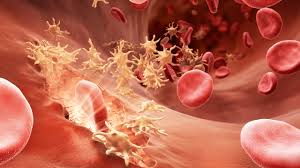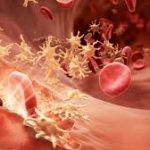By Asma’u Ahmad
A Medical Laboratory Scientist, Dr. Adeolu Anifowoshe of the Alpha and Omega Laboratory Centre, Ibadan, has called on Nigerians to stop stigmatising women and girls having haemophilia (bleeding disorder) in the society.
Dr. Anifowoshe made this call in an interview with the media men in Ibadan while fielding questions on this year’s celebration of the World Haemophilia Day.
He said that many women who suffer this disease were usually unaware of their condition and the odour usually led to their being stigmatised.
Newsmen report that this year’s theme is: “Lighting it Up in Red.” He said that haemophilia was a rare disorder in which the blood clot did not clot normally because it lacks sufficient blood clotting proteins (clotting factors).
“A patient with haemophilia may bleed for a longer time after an injury than he/she would, if the blood clotted normally. This internal bleeding can damage organs and tissues, and may be life-threatening.
“A great concern is a deep bleeding inside the body, especially in the knees, ankles and elbows,” he said.
The scientist said that haemophilia was a genetic disorder which has no known cure yet, adding that with proper treatment and self-care, most people with haemophilia could maintain active productive lifestyles.
He explained that haemophilia is caused when there is deficiency in one of the clotting factors in the body.
“When you bleed, your body normally pools blood cells together to form a clot to stop the bleeding. The clotting process is encouraged by certain blood particles (platelets and plasma proteins).
“Haemophilia occurs when there is a deficiency in one of these clotting factors,” he said.
The laboratory scientist said some symptoms of haemophilia included excessive bleeding from cuts or injuries or after surgery or dental work, prolonged menses in women, many large and deep bruises.
Prof. Adenihun Adenikawo, a retired professor of haematologist from the Lagos University Teaching Hospital, advised patients to seek immediate medical attention, if a prolonged bleeding is noticed after circumcision in a baby boy.
“In boys who are not circumcised, easy bruising when the child becomes more mobile may lead to the diagnosis and the first episode of bleeding generally occurs by the time a child is two years old.
“If your child bruises easily, see a doctor. If your child has heavy bleeding that can’t be stopped after an injury, seek medical care. If you are pregnant or considering pregnancy, and have a family history of haemophilia, talk to your doctor.
“You may be referred to a specialist in medical genetics or bleeding disorders, who can help you determine if you are a carrier of haemophilia. If you a carrier, it is possible to determine during pregnancy if the foetus is affected by haemophilia,” she said.
According to Dr. Adenikawo, the incidence of haemophilia is low in Nigeria, adding that one in every 10,000 have it or were born with it.
In the same vein, a Community Health physician, Dr. Olufunmilola Lola-Dare, said that the World Haemophilia Day is very significant in the sense that many people particularly women are unaware that they have bleeding disorders.
She said this year’s is an invitation to find out more about haemophilia and inherited bleeding disorders.
“It’s an opportunity to learn about the fact that many people have inherited bleeding disorders and are not diagnosed, or live with one or don’t have access to care,” she said.
Newsmen report that every April 17 has been set aside by the World Health Organisation (WHO) as world haemophilia day, which is supported by the World Federation of Haemophilia (WFH).





